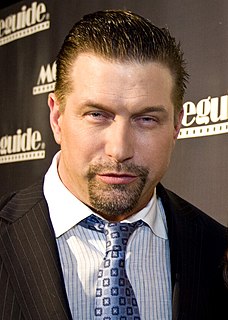A Quote by Rita Dove
As an African-American, as a woman, I think that I've been sensitized to the way in which history privileges the white male and the way in which certain aspects of history, the things that we are taught in school, the things that are handed down, never, never entered the picture though they might have been very important.
Related Quotes
As an African-American, as a woman I think that I've been sensitized to the way in which history privileges the white male and the way in which certain aspects of history, the things that we are taught in school, the things that are handed down never, never entered the picture though they might have been very important.
The white American man makes the white American woman maybe not superfluous but just a little kind of decoration. Not really important to turning around the wheels of the state. Well the black American woman has never been able to feel that way. No black American man at any time in our history in the United States has been able to feel that he didn't need that black woman right against him, shoulder to shoulder-in that cotton field, on the auction block, in the ghetto, wherever.
I'm one of those persons who think that watching black people suffer is not an idea of entertainment. I know a lot about African American history, which is just American history, it's always been very fascinating to me. The premise of the play is remembering and honoring those persons whose stories would never be taken into account.
You know, when Trayvon Martin was first shot I said that this could have been my son. Another way of saying that is Trayvon Martin could have been me 35 years ago. And when you think about why, in the African American community at least, there's a lot of pain around what happened here, I think it's important to recognize that the African American community is looking at this issue through a set of experiences and a history that doesn't go away.
When the nuclear weapons were sent to the racist South African government, where a few million white people subjugated more than 13 million black people, it was so they could use them against the Cuban forces that were defending Angola. These things have not been written down but they need to be told as part of the reality of history which should not be distorted the way the historians connected to the power elite tend to do.
In history there are no control groups. There is no one to tell us what might have been. We weep over the might have been, but there is no might have been. There never was. It is supposed to be true that those who do not know history are condemned to repeat it. I don't believe knowing can save us. What is constant in history is greed and foolishness and a love of blood and this is a thing that even God--who knows all that can be known--seems powerless to change.
In the early 1970s in Atlanta, I attended what had formerly been an all-white school but had become a black school after integration and white flight. Perhaps because of this, the teachers created a curriculum that included a focus on African American literature and history year-round, not just in February.
The world's history is a divine poem, of which the history of every nation is a canto, and every man a word. Its strains have been pealing along down the centuries, and though there have been mingled the discords of warring cannon and dying men, yet to the Christian philosopher and historian - the humble listener - there has been a Divine melody running through the song which speaks of hope and halcyon days to come.
I'd studied English literature and American history, but the English literature, which I thought was going to be helpful to me in an immediate way, was the opposite. So I had to un-think a lot of things and move out of my own head, and I learned a lot. It was like graduate school, but an un-graduate school or an un-school.
College was pivotal for me. It broadened my horizons, taught me to think and question, and introduced me to many things - such as art and classical music - that had not previously been part of my life. I went to college thinking that I might teach history in high school or that I might seek a career in the retail industry, probably working for a department store, something I had done during the holidays while in high school. I came out of college with plans to do something that had never crossed my mind four years earlier.
I didn't mean to spend my life writing American history, which should have been taught in the schools, but I saw no alternative but to taking it on myself. I could think of a lot of cheerier things I'd rather be doing than analyzing George Washington and Aaron Burr. But it came to pass, that was my job, so I did it.
When I went back home, I was constantly being reminded, I'm an African woman, and so there are certain things I shouldn't do, certain ambitions that I should not entertain. That was a problem for me because I had never thought of myself as an African woman, never thought of myself as a woman to begin with. For me the limit was my capacity, my capability.
When you do what I've done - the normal Hollywood way, where you let people do things for you - and then you make certain choices where you have to learn to do it for yourself, which is how you should do it, it caused me to get way behind in stuff. I wouldn't change a thing because it's been a very important learning thing.





































